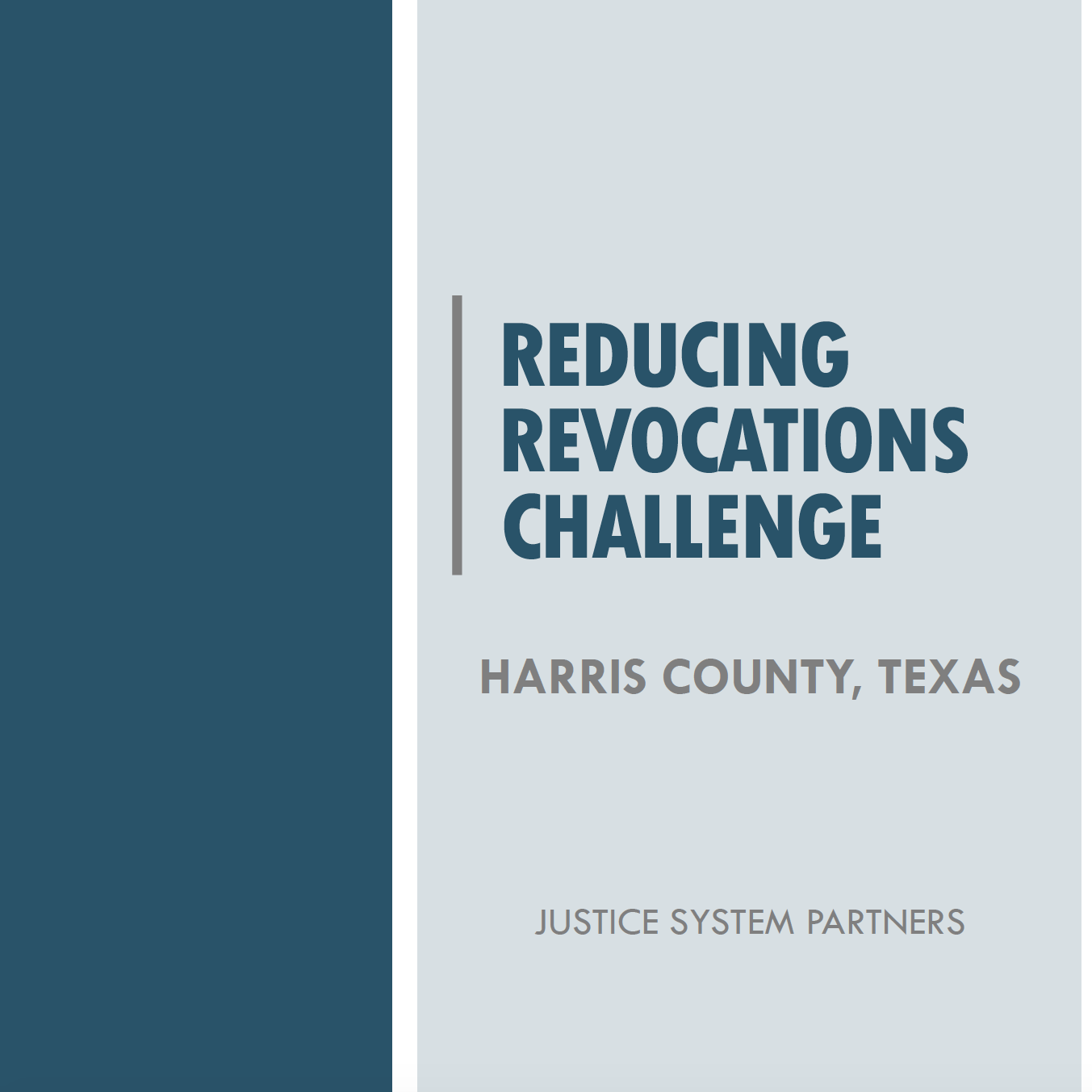Reducing Revocations Challenge: Harris County, TX
Brian Lovins, Shannon Magnuson
As jurisdictions try to reduce mass incarceration, there is a strong desire from researchers, justice stakeholders, and advocates to use prison as little as possible and keep people in their communities as much as possible. Probation fulfills both goals. However, recent studies suggest that probation sentences, rather than providing a true alternative to incarceration, merely delay incarceration. Instead of completing probation successfully, many clients receive probation terminations (revocations) for non-compliance to probation rules (technical violations), for new law offenses (law violations), or fleeing all together (absconding). For the many clients who receive revocations, this ultimately ends in returns to custody.
In this new era of mass probation, understanding the drivers of revocations is paramount in the fight against mass incarceration, and even more importantly, helping individuals successfully complete probation and stay in their communities.
Using a mixed-methods design, this research explores the complexity of probation violations in Harris County, Texas (Houston-metro area). Findings show several predictors driving probation violations, including the number of completed office visits early in the probation process, number of conditions assigned to individuals, and positive urinalysis tests. This report describes the methods and findings in detail and offers recommendations for each of these primary drivers.

